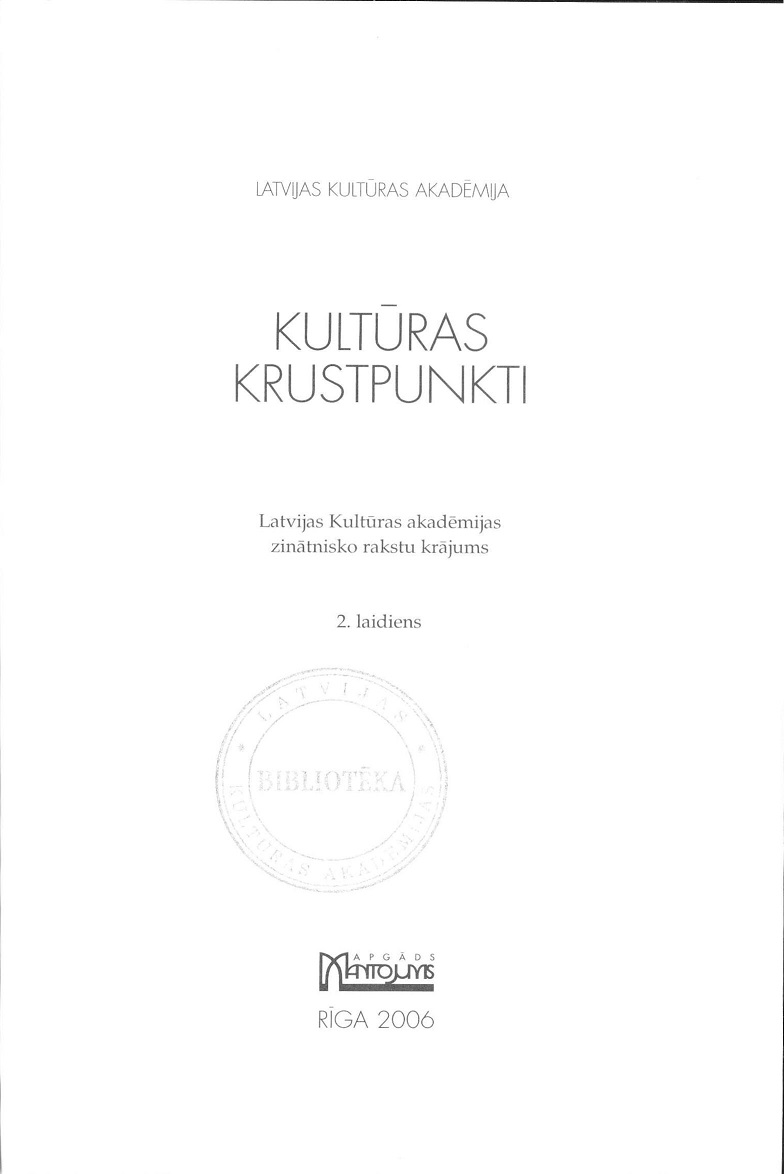Pagātne kā nākotne: vecticībnieku kultūras pieredze
Past as Future: Cultural Experience of the Latvian Orthodox Old Believers
Author(s): Nadežda PazuhinaSubject(s): Cultural history, Ethnohistory, Culture and social structure , Sociology of Culture, Eastern Orthodoxy, Sociology of Religion, History of Religion
Published by: Latvijas Kultūras akadēmija
Keywords: Old Believers; Orthodoxy; Latvia; culture; cultural memory; contemporary culture;
Summary/Abstract: The article is devoted to the problem of cultural memory and its mechanisms in the context of the contemporary culture of Latvian orthodox Old Believers The individual memory as well as the collective memory are defined by con temporary sociocultural context and have an effect on the constructing of both the own-history-image and own-future-image. Latvian Old Believers as a peculiar ethnic confessional group have preserved their identity in the polycultural milieu during three centuries. Persecutions and repressions by the Russian Orthodox Church and the state structures of Russian Empire have put Old Believers to long cultural self-isolation (up to the Manifest of 1905). In the Old Believers' tradition, this experience has formed stabile ideas about their own his tory, based on repeating of the actualization of texts sanctified by tradition (in the semiotic sense of this term). In spite of the confessional heterogeneity of the Russian Diaspora in Latvia, the Old Believers aspired for a cultural dialogue and actively participated in the social activities of the Russian minority in the 1920-1930s. After the restoring of the independence of Latvia in the 1990s, the problem of cultural identity arouse for the representatives of different national minorities. In contemporary Old Believers' self-reflection, the actualization of authority texts refers to the specific religious and cultural identity of Latvian Old Believers. Namely, the old-believers recognize themselves as native local Russian inhabitants contrary to the “Soviet Russians" who do not have the common historical basis with Old Believers. The analysis of the Old Believers' contemporary periodical press shows that they emphasize the issue of returning to/re-reading the texts of the past in order to actualize the ancestral rules and rites as a cultural code for the contemporary every-day life. Seemingly in the Old Believers' subculture there have formed some mechanisms that make it possible for Old Believers to adapt to each political change, because of their principal alienation (estrangement) - following the model of attitude towards antichrist's world.
Journal: Culture Crossroads
- Issue Year: 2/2006
- Issue No: 1
- Page Range: 206-212
- Page Count: 7
- Language: Latvian

